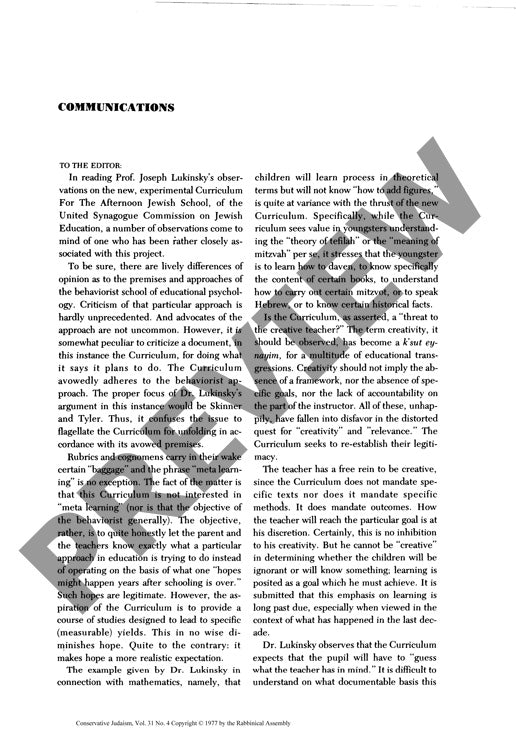Communications
Couldn't load pickup availability
This communication presents a scholarly exchange regarding the United Synagogue Commission on Jewish Education's experimental Curriculum for the Afternoon Jewish School. The primary discourse involves a defense of the curriculum's behaviorist educational approach against criticisms raised by Professor Joseph Lukinsky. The methodology examined centers on the curriculum's adherence to behaviorist principles, emphasizing measurable learning outcomes and specific educational objectives rather than abstract "meta-learning" concepts. Key findings indicate that the curriculum does not inhibit teacher creativity but instead mandates specific learning outcomes while allowing pedagogical flexibility in achieving these goals. The analysis reveals that the curriculum acknowledges diverse educational needs through four distinct branches rather than applying a universal approach. Contrary to criticism, the curriculum explicitly recognizes that Jewish education must extend beyond Bar Mitzvah age and does not assume educational truncation at thirteen. The communication also addresses supplementary halakhic clarifications regarding Virginia Trimble's essay on Masada and suicide in Jewish law, noting specific textual corrections and additional scholarly sources. The main conclusion supports the curriculum as a potentially effective educational framework for Conservative movement schools, arguing that it provides realistic, measurable educational goals while maintaining appropriate pedagogical standards for afternoon congregational schools.

More Information
-
Physical Description
-
Publication Information
Published 1977
ISBN
-
Publication Credits

